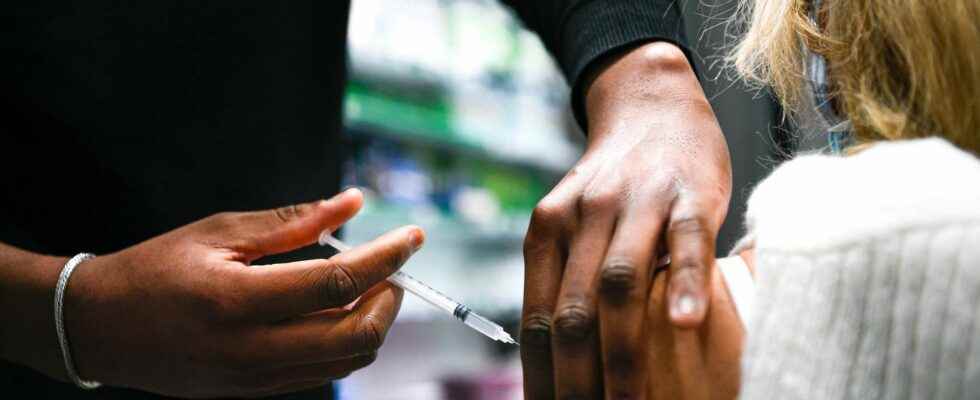You may also be interested
[EN VIDÉO] Monkey pox, should we be worried about it? What are the symptoms, the modes of transmission and how to treat it? Monkey pox or Monkeypox is beginning to worry people.
In five pharmacies, located in Ile-de-France, Provence-Alpes-Côted’Azur and in Hauts-de-France, pharmacists will be able to vaccinate people against smallpox of the monkey, from Wednesday, during this experiment of a duration two weeks, the health ministry told AFP.
Two pharmacies in Ile-de-France, two in Provence-Alpes-Côte-d’Azur and one in Hauts-de-France have been selected by the regional health authorities, we add. This experiment will test the organizational models between the pharmacies and the hospitals that receive the doses in order to decide whether it is appropriate to extend the vaccination campaign to other pharmacies.
Assess the risk of wasted vaccine doses
The smallpox vaccine used for vaccination versus monkey pox must absolutely be kept at very low temperature (-80°C) and can only be kept for fifteen days once thawed, the ministry explains. The vaccines, although mono-dose, are packaged in boxes of twenty doses. ” It will therefore be a question of evaluating whether there is no loss of doses “, specifies the ministry. He recalls that, unlike the vaccination campaign against Covid-19, pharmacies this time will only be able to target a limited audience.
The target audience includes men who have sex with men reporting multiple sexual partners, trans people reporting multiple sex partnerssex workers and professionals working in places of sexual consumption.
Faced with criticism from associations and elected officials on the left about the slowness of the vaccination campaign, the Minister of Health François Braun said last week that he was working on an experiment with pharmacists. To do this, a decree will be published in Official newspaper in the coming days, the ministry said. To date, 153 vaccination centers have been opened in the territory and 20,322 people have been vaccinated as of August 4.
Vaccination against monkeypox is open to all people considered to be at risk following a decision by the Haute Autorité Santé. Who is eligible and what vaccine is given?
Article of Julie Kernpublished on July 31, 2022
On July 8, 2022, the Haute Autorité de Santé modified its recommendations regarding vaccination against monkeypox. The initial strategy was to vaccinate people infected with the virus, within a maximum of four days, and their close contacts. Unfortunately, this did not sufficiently limit the spread of the monkeypox virus.
Now everyone considered to be at risk of contracting the disease can receive a vaccine. To accommodate this public, several vaccination centers have been set up throughout France (the list of centers is available here), but especially in Ile-de-France, the region most affected by the disease. Let’s take stock of this new vaccine strategy.
People eligible for vaccination
The Haute Autorité de Santé has identified several groups of people at risk of contracting monkeypox:
- men who have sex with other men and multiple sex partners;
- transgender people with multiple sexual partners;
- sex workers;
- professionals in places of sexual consumption.
Health professionals are not currently concerned by vaccination against monkeypox, but depending on the case (risk of exposure, health problems), it may still be considered.
Imvanex and Jynneos, the two vaccines available
The Imvanex and Jynneos vaccines have an identical composition, only their trade name changes. These are composed of one active ingredient : at least 105 infective units of live modified Ankara vaccinia virus. These infective units are capable of effectively stimulating the immune response but are non-replicative, meaning they cannot replicate in human cells.
Moreover, the Ankara vaccinia virus does not cause disease in humans. Added to this are excipients: trometamol, chloride of sodium and water. While both of these formulations were originally designed against smallpox, studies indicate that they are 85% effective in preventing infection with monkeypox virus.
the protocol vaccination can vary according to the profiles:
- one dose for people vaccinated against smallpox before 1980;
- two doses spaced 28 days apart for the general population (or more if out of stock);
- three doses for immunocompromised people.
The contraindications concern people with allergy known to one of the constituents of vaccines. The expected side effects are the same as for any vaccine: pains at the injection site, fatigue, syndrome flu-like. And more rarely, Rashes (especially for people who already have atopic dermatitis) and a sinusitis.
Protection is not immediately effective after vaccination, it is therefore necessary to respect gestures of prevention simple hygiene practices to limit the risk of contamination.
Interested in what you just read?
